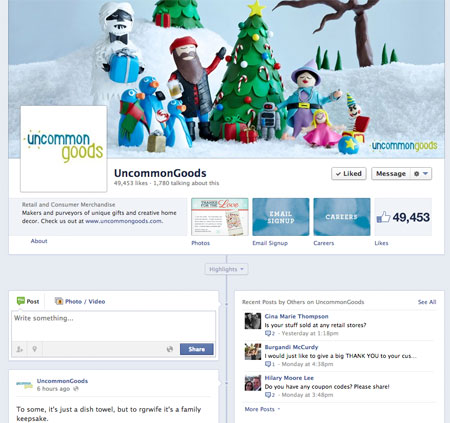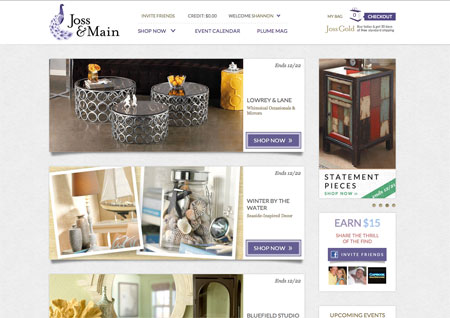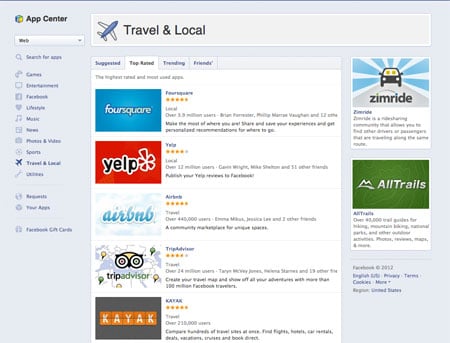When we chat with folks about marketing their business online, the conversation inevitably turns to websites and social media.
Do I need a website? How important is a website vs. social media? Should I start off with a Facebook Page instead?
Social media is an important consideration. We use it as part of our own marketing, and we're definitely getting leads and business results from social media.
But, well before we posted on Facebook walls or Tweeted or updated our network on LinkedIn, we were building out our website.
Social media can be great. But it shouldn't come first. When you're establishing your company online, you need a strong website to be the "hub" of all your marketing.
Why You Need A Good Website To Call Home
You can decorate just the way you want.
Sure, you can customize your social media profiles. You can add unique "cover photos" on Facebook and LinkedIn pages, and you can put up a cool background and photo for your Twitter profile.
At the end of the day, though, you're still "designing" your presence within the constraints of the platform you're using. There may be some minor differences, but you're still looking at a Facebook Page or a Twitter profile.
Look at the Facebook Pages for Uncommon Goods and Joss & Main, two e-commerce sites that sell home décor. Though some customization is in place, they still look pretty similar.


With a website, you have much more flexibility. Everything, from the color scheme to the typography, is uniquely yours. You can clearly differentiate your online marketing from that of a competitor.


You can add the features you need.
In addition to design constraints, there are functionality constraints that come with social media sites. On Facebook, you could tweak the features and functions on your Page through the use of apps.

But that's Facebook. You can't really alter the core features of Twitter or Google+ to fit your business' marketing needs. Features are also pretty set and standard across LinkedIn Company Pages.
Even with Facebook Apps, you have to use what's already available in the App Center. Alternatively, you could work with an app developer to create and submit a brand new app. But then you have to worry about finding a developer and taking on the additional expense of having an app created.
With a website, you get the exact features you need. Just like when you build a house, you determine the must-haves. You work with your website designer to ensure everything meets your specifications. The necessary functionality is in place up front, saving you time and money in the long run.
You own it.
With social media, there's the perpetual question of ownership. Though Facebook, Twitter and the like say that your content belongs to you today, there's no guarantee that they'll still be saying that in a month or a year. They can update their Terms of Service to something different whenever they want, without warning.
![]() Look at the recent stir with Instagram. The photo-sharing service changed their terms of service to include the following statement:
Look at the recent stir with Instagram. The photo-sharing service changed their terms of service to include the following statement:
You agree that a business may pay Instagram to display your photos in connection with paid or sponsored content or promotions without any compensation to you.
Instagram users were outraged; to them, it sounded an awful lot like Instagram could sell user photos without getting permission first or paying users a dime. While Instagram insisted that was not their intention, and they would revise their terms to remove the ambiguity, you can't escape the fact that there will always be uncertainty.
Ultimately, you're just "renting" space on social media/social networking websites. A website is a permanent home for your content.
You'll always have somewhere to go tomorrow.
Social media sites are always coming and going. On the one hand, that's very exciting. There's always somewhere new to explore. On the other hand, the social media world is very volatile. Friendster, Google Wave, Google Buzz, MySpace, Hi5, Bebo...the list of sites that have crashed and burned goes on and on.
And while Facebook and Twitter are lucky enough to have longevity (Facebook started back in '04, Twitter in '06), that doesn't guarantee they'll be around forever.
If you rely solely on a social media site as your "home base" for online marketing, you risk losing everything if that service shuts down.
Your website is a stable, permanent place. And you can rest assured it will still be there when you wake up in the morning.
You're the host with the most.
A social media profile is a great place to interact with existing and potential customers, no doubt. However, you don't want that to be the only destination where people visit you.
Engagement is great. But at the end of the day, you're only helping that social media platform with its business. You're driving traffic to Facebook; you're upping the numbers of returning visitors to Twitter; you're increasing the time spent on site for Pinterest.
Social media sites are like coffee shops. They're fun to hang out in...but you don't want to live there. You need your own space where you can have company over.
By focusing your efforts on your website, you become the host with the most. You get all the visitors.
Social media can definitely enhance and diversify your online marketing efforts. But social media shouldn't be the foundation of everything you do online. You need a strong website to be your home base. You have complete control over a website and can truly put your stamp on it.
Do you have a solid website as the foundation of your online marketing? Or could your strategy use a little housekeeping? Request a free website evaluation and find out how to make your website the best one on the block.
Photo credits: James Jordan, ShopTalkLondon









